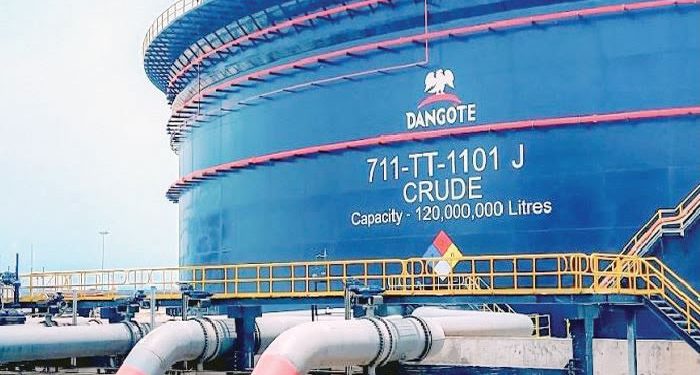The Dangote Petroleum Refinery has clarified that the recent drop in petrol pump prices across Nigeria was driven solely by its decision to reduce petrol prices earlier in the month, dismissing claims that the temporary suspension of the 15 per cent import tariff influenced the adjustment.
In a statement seen on Monday, the company explained that its November 6 reduction in ex-depot and coastal prices was what prompted marketers nationwide to review their pump prices. The refinery noted that it had lowered its PMS gantry price from N877 to N828 and adjusted the coastal price from N854 to N806, adding that marketers only reacted after these changes were implemented.
According to the refinery, the pricing move reflects its broader commitment to supplying high-quality refined products at competitive rates. It said domestic refining and economies of scale continue to give it the advantage to stabilise the market and reduce Nigeria’s reliance on imported fuel. The company added that it remains committed to ensuring Nigerians feel the full benefits of local production.
The update comes against recent regulatory changes, after the Nigerian Midstream and Downstream Petroleum Regulatory Authority announced the suspension of the proposed 15 per cent ad-valorem duty on petrol and diesel. The Authority assured consumers of product availability despite increased demand during the peak season.
Before the suspension, Dangote Refinery had supported the government’s plan to implement the tariff, arguing that it would protect local refiners and prevent dumping of imported products. The refinery also stated that it has enough capacity to meet national demand, disclosing daily loadouts of about 45 million litres of petrol and 25 million litres of diesel while working with regulators to improve distribution.
The suspension of the tariff has generated mixed industry reactions. The Centre for the Promotion of Private Enterprise urged the government to immediately reinstate the duty, warning that removing it could harm Nigeria’s refining sector, weaken investor confidence, and undermine long-term economic stability. Other stakeholders, however, have welcomed the suspension, viewing it as a short-term relief for consumers.
For MSMEs already struggling with operational costs linked to fuel prices, the refinery’s clarification signals that future pump price movements may depend more on domestic production decisions than tariff policy.
This could bring some predictability to fuel-dependent businesses, though ongoing policy debates mean uncertainty remains in the sector.










